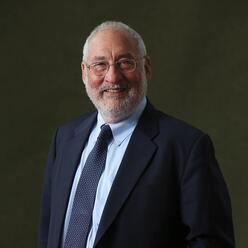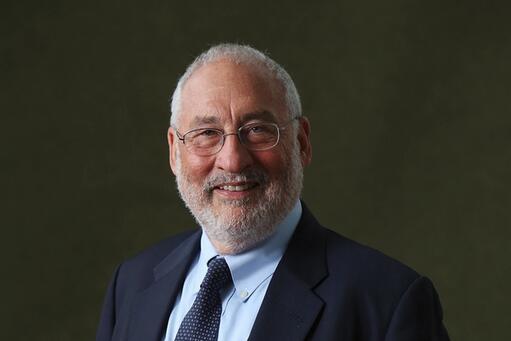Joseph Stiglitz is one of the giant figures in economics of the last 50 years. He has made seminal and fundamental contributions to every subfield of economic theory: microeconomics, macroeconomics, industrial organization, international economics, labor economics, financial economics and development economics.
Professor Stiglitz has published more than 300 papers in the premier journals of the field, as well as a dozen books in a 35-year career. During his career, he has been a professor at Yale, where he was tenured at the unusually young age of 27, as well as at Princeton, Oxford and Stanford. He became a fellow of the Econometric Society at the age of 29 and is a member of the National Academy of Science. Professor Stiglitz is also the recipient of the prestigious John Bates Clark Medal, awarded every two years to the American economist under the age of 40 who has made the most significant contributions to the subject.
Stiglitz, not content to confine his immense talents to academia, has in the last decade become an enormously influential player in the making and evaluation of economic policy. He served — first as a member and later as chairman with cabinet rank — in President Clinton’s Council of Economic Advisers. He was later named chief economist of the World Bank. Since January 2000, he has been visiting Columbia as the Joel Stern Visiting Scholar at the Business School as well as at the Department of Economics.
Stiglitz brings to the Business School’s Finance and Economics division world-renowned expertise in areas that are central to the mission of Columbia Business School. His appointment adds luster to an already distinguished group of scholars and teachers, particularly in the area of international and financial economics. For the economics department of the Graduate School of Arts and Sciences, the Stiglitz appointment will add an economic theorist of the highest rank, one who is on the informal short list for a Nobel Prize.
For the School of International and Public Affairs (SIPA), Stiglitz brings a wealth of experience and expertise in virtually all facets of international economic policy. His appointment will add enormous luster to the School’s already substantial reputation in these areas. Stiglitz plans to locate his new Initiative for Policy Dialogue at SIPA.
The Initiative for Policy Dialogue, which is funded with substantial foundation support, aims to provide an alternative to the International Monetary Fund and World Bank for countries in need of sound economic policy advice.
###


